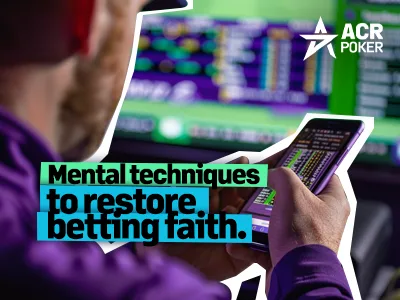Every participant in games of skill and chance, from the casual sports bettor to the seasoned poker professional, inevitably faces a downturn. A losing streak can be more than just a financial setback; it can dismantle a player’s self-assurance, leading to hesitation and poor decision-making. The ability to bounce back is a critical skill, and the foundation of that recovery is rebuilding confidence after losses. This process is not about ignoring the losses but about learning from them to emerge with a stronger, more resilient mindset.
Understanding the Psychological Toll of a Losing Streak
A string of negative results can trigger a cascade of psychological challenges. What begins as bad luck can quickly morph into self-doubt, affecting a player’s ability to execute their strategy effectively. Recognizing these effects is the first step toward overcoming them and restoring confidence after losses.
Common Mental Game Pitfalls
During a downswing, players often fall into predictable mental traps. These reactions are normal, but if left unaddressed, they can prolong the streak and cause significant damage to one’s bankroll and morale.
- Tilt: This is an emotional state where a player makes irrational decisions due to frustration or anger from previous losses. They might play hands they shouldn’t or make overly aggressive bets to chase their money back.
- Risk Aversion: The opposite of tilt, some players become overly cautious. They fear losing more and start passing on profitable opportunities, playing too passively and failing to maximize value.
- Loss of Focus: Constant negative results can be mentally draining, making it difficult to concentrate. A lack of focus leads to missed details, poor reads, and tactical errors.
A Step-by-Step Guide to Rebuilding Confidence
Regaining your mental footing requires a structured, disciplined approach. It is an active process that involves stepping back, analyzing your performance objectively, and making strategic adjustments to your gameplay and mindset. Mastering this recovery is essential for long-term success.
Step 1: Implement a Strategic Pause
The most crucial immediate action is often to stop playing. Continuing to compete while emotionally compromised is a recipe for further losses. A calculated break, whether for a few hours or a few days, allows emotions to cool and provides the mental space needed for objective reflection. This is not a sign of weakness but a mark of professional discipline. Use this time to disconnect completely from the game and engage in other activities.
Step 2: Conduct an Unbiased Performance Review
Once you have gained emotional distance, it is time to analyze your recent sessions. The goal is to separate bad decisions from bad outcomes. A player can make the correct play and still lose due to variance. Rebuilding confidence after losses often comes from confirming that your decision-making process was sound, even if the results were not. Reviewing hand histories or betting logs helps identify whether the losses were due to mistakes or simply statistical probability.
| Situation/Hand | Decision Made | Outcome | Analysis of Decision |
|---|---|---|---|
| Pre-flop raise with A-K | Re-raised an early position opener | Lost to a set of 7s | Correct, aggressive play. Unlucky result. |
| Bluff attempt on river | Bet large on a missed draw | Opponent called with a weak pair | Potentially a poor bluff. Opponent was unlikely to fold. |
| Folding top pair | Folded to a large turn bet | Opponent showed a flush | Good, disciplined fold. Saved additional losses. |
Step 3: Reduce Stakes to Lower Pressure
Returning to the tables after a break can be intimidating. A highly effective strategy is to drop down in stakes. Playing for less money reduces financial pressure and allows you to focus purely on making good decisions. The objective is to book a few small, successful sessions to prove to yourself that your strategy still works. Many online platforms, including operators like ACR Poker, offer a vast array of game stakes, making it easy to find a comfortable level to rebuild momentum and confidence.
Step 4: Shift Focus from Results to Process
Short-term results are heavily influenced by luck. Long-term success, however, is determined by the quality of your decisions. Concentrate on executing your strategy perfectly on every single hand or wager. Celebrate making a good fold or a well-timed value bet, regardless of the immediate outcome. When your self-worth is tied to your process rather than your profit and loss, your confidence becomes insulated from the natural swings of variance.
Cultivating a Resilient Long-Term Mindset
Ultimately, maintaining confidence after losses is about internalizing the realities of variance. No player wins all the time. Losing streaks are a mathematical certainty in any game that involves chance. The best players in the world endure them by trusting their skills and remaining disciplined. True confidence is not the belief that you will never lose; it is the unwavering belief in your ability to make profitable decisions over the long run, weathering any storm that comes your way.

